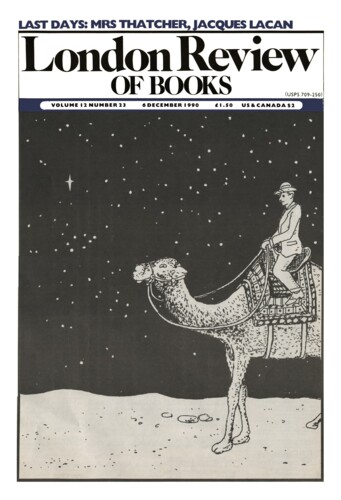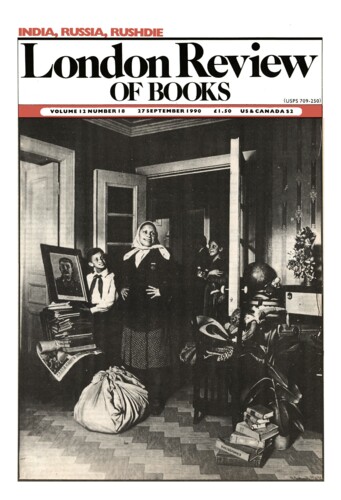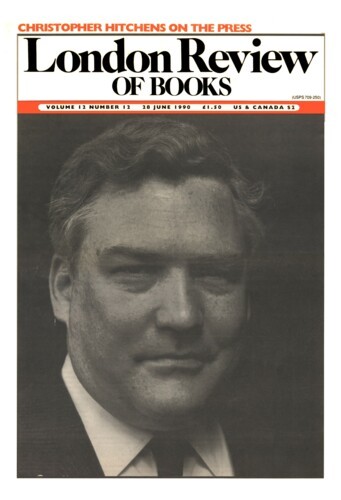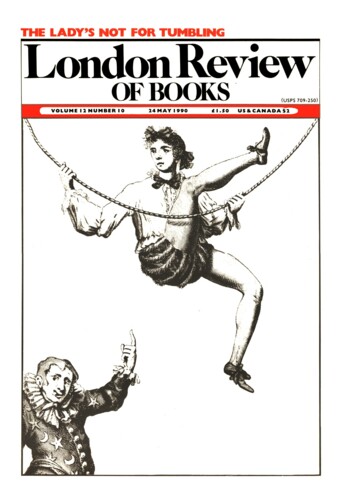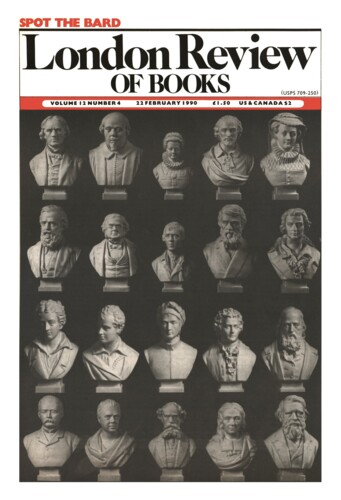Lament for the members of a class of masters
Gabriele Annan, 6 December 1990
Gregor von Rezzori was born on his mother’s estate in Bukovina in 1914. Bukovina was Austrian in those days, Romanian after the First World War, and Russian after the second. The Rezzoris were minor Austrian gentry administering the outposts of empire, more like the British in India than like the magnates who entertained Patrick Leigh-Fermor when he passed through the Balkans. There was Italian blood on the father’s side and Romanian-Greek and Irish on the mother’s. Rezzori is very much concerned with blood and racial inheritance in all his books. The concern itself appears to be an inheritance: his father was steeped in late 19th-century Greater German ideology. He was also unquestioningly anti-semitic. Rezzori deplores such attitudes: but he can never leave them alone – they are an ingredient in the fuel he runs on.’
